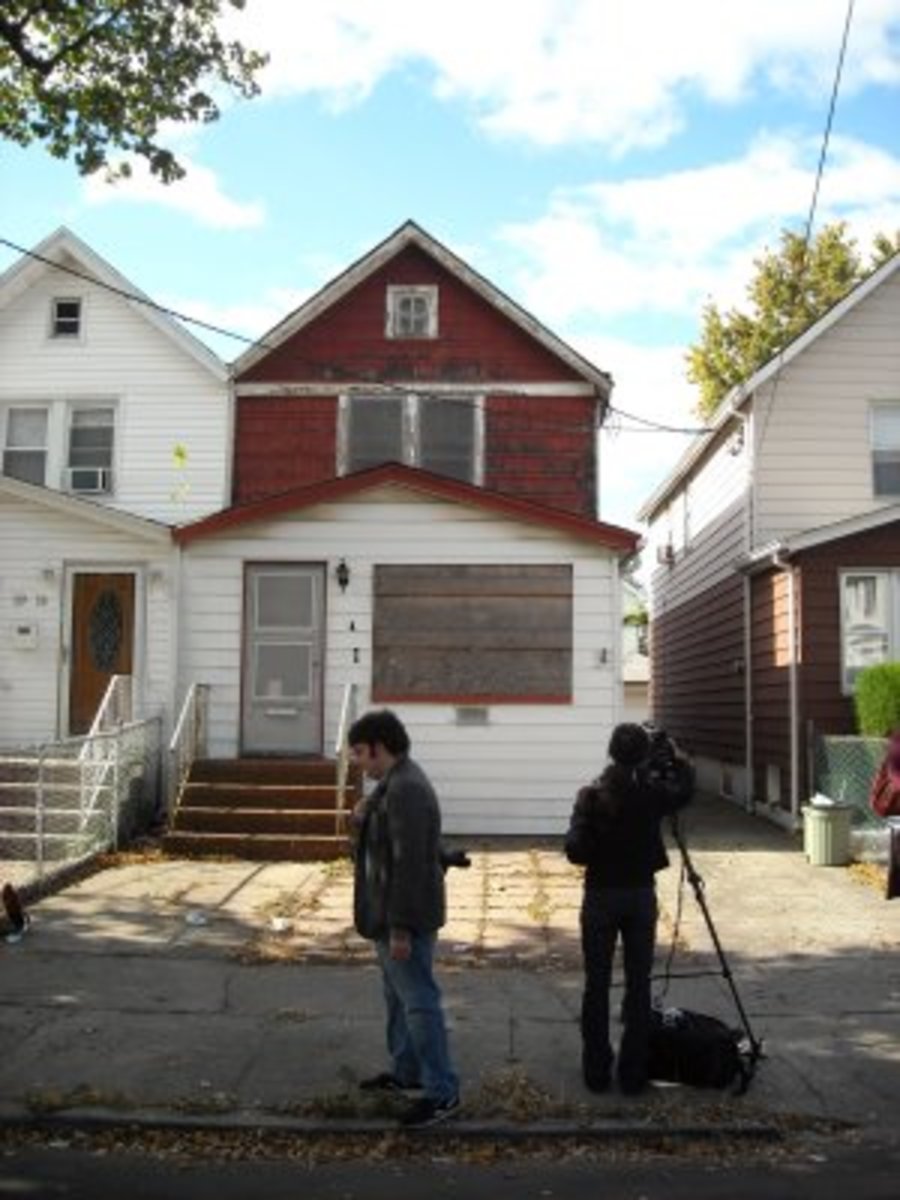What to Expect When Buying a Bank-Owned Foreclosure Property

Would You Rather
How do you prefer to buy your next home or investment property?
Expect Additional Costs When Buying From a Bank
My husband and I bought a bank-owned REO home in the final state of foreclosure in the northwest corner of the Phoenix metro area. As buyers new to buying a home from a bank, we knew we would experience some unexpected and hidden costs. These costs increase our out-of-pocket expenses and were in addition to the purchase price of our home. I hope what I learned from our experience will help make a more informed choice when buying from a bank, a builder, or through traditional real estate sales and save some money, too.
Overall, we are very happy with our foreclosed home purchase. We were fortunate to find a 4-year new home that was well-taken care of by its previous owners. It has many upgrades that we wouldn't be able to afford in a new build.
I am not a realtor and do not work in the housing industry. I am a home buyer. This home we bought is the fourth we've owned. I don't make any promises or guarantees, and the opinions expressed here are just that.
We Should Have Used a Different Lender
What we did: Buying from a credit union
We decided to use our credit union to get a loan to finance the purchase of our home. We had a history of on-time payments with our credit union, and as established customers had enjoyed low interest rates and terms of service on previous loans. We felt our relationship with the credit union as established customers with a borrowing history would help create a seamless borrowing experience. This was our experience in the past.
Unfortunately, that wasn't what happened. The reality was complicated by the tightened lending regulations and the small lender's relationship with Fannie Mae. We were prequalified, but preapproval was contingent upon not only OUR credit worthiness, but also the credit union's acceptance of the property we bought. Our credit union was extremely leery of loaning us the money for the purchase of our home. The good news? We got an amazing rate. The bad news? The credit union added a costly private mortgage insurance policy to our loan that we could and should have avoided. And dealing with unexpected problems of borrowing from the credit union almost spoiled the deal for us not once or twice, but three times.
What you can do to avoid this problem
Get prequalified, then choose a lender that has a history of working well with the bank you are purchasing from.
Get prequalified through a lender you trust so your offer will be accepted by the bank you want to buy from. It is likely that you will have to place offers on multiple properties, so having a preapproval in the works will help you get your offer accepted.
Find out what special incentives the bank selling your home will offer if you use their preapproved lender. Banks historically haven't been in the real estate business, and using the bank's approved lenders could help smooth the way for a shorter, more successful buying experience, and cut down on costly delays, or worse yet, deal-breaking snafus. Call all of the preapproved lenders on the list and use the lender who will offer you the best loan rate and terms. As contrary to conventional wisdom as this sounds, it would have saved us about $150 dollars a month, which is what we are now paying for private mortgage insurance.
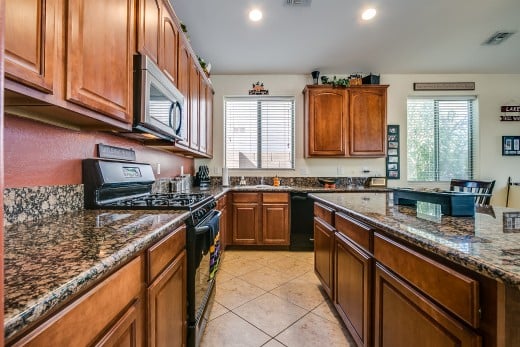
Appliance Purchases Are the Norm, Not the Exception
Our home came with a working stove, a non-working dishwasher, and spaces for a brand new microwave and refrigerator. The previous occupants had removed these from the home and the bank did not offer an appliance allowance. We felt ours was a good find because the home DID have a large quantity of nice cabinets, tile in the right places, and granite counters in the kitchen. We looked for flooring and kitchen upgrades in the home we bought, figuring the appliances wouldn't be cheap, but new appliances would add value to the property.
After we also purchased an energy-efficient front-loading washer and dryer. These purchases added up quickly. We paid over $3000 for the new mid-range appliances. On the one hand, we have new appliances we know to be under warranty, and they certainly look nice in our kitchen. On the other hand, there are cheaper ways of going about obtaining appliances.
For instance, we could have had the dishwasher repaired instead of replacing it. We also could have saved money by paying cash for second-hand appliances. If you are short on funds getting into your bank-owned purchase, make sure you factor the cost of appliances into your home purchase.
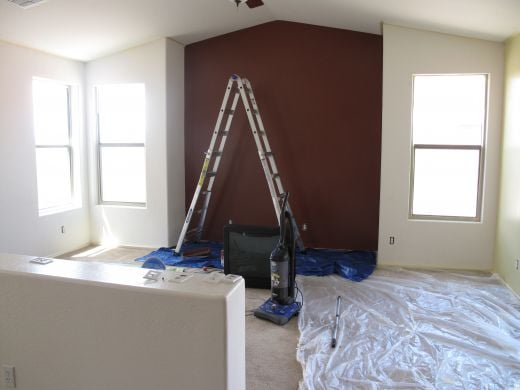
Expect Delays in Closing
Almost every person I meet who has purchased a home from the bank has experienced some kind of frustrating delay during the closing period. Most banks who are trying to get rid of their inventory want the best of two worlds. They want a super fast closing with few strings attached, but they don't have the resources to close as quickly as they want. Add to the mix bank employees who aren't realtors, and a certain amount of confusion may be inevitable. With new homebuyers coming into the market and seeking the most for their money, a significant amount of purchasing activity is creating heavy case loads at lending institutions, title companies, and service industries like home inspectors. This situation can be worsened in tight housing markets.
Our friends in Utah recently closed on a short sale that had been in the works for almost 6 months. After selling their residence they were homeless and ended up spending a small fortune in storage fees. Fortunately they were able to live with family.
I believe that delays are going to be rule and not the exception in a bank-owned purchase. You will need a flexible housing situation. In our case, we planned to buy our bank-owned home up-front and opted for a month-to-month lease. However, our bank-owned deal took longer to close than we anticipated, and we had to spend over $500 more than we thought we would on extending our rental period so we could paint, replace appliances, and get moved.
Other costs that you may not be expecting include double-paying housing and utilities if you plan to paint your place before you move in.
Home Owners Association Fees Increase Cost of Home Ownership
Our home is in a neighborhood that belongs to a home owner's association (HOA). When we were shopping around for our bank-owned home, we fell in love with houses in a neighborhood in another part of our city. The houses were a little lower-priced than some of the other houses of a similar size, and the builders had added nice features to the houses. That neighborhood also has an HOA. We learned through the grapevine from someone we know that the HOA in that neighborhood had a history of raising the monthly association fee, and learned that the HOA had significantly higher fees than the neighborhood we ultimately bought in.
If the foreclosed homes in your area are in neighborhoods with HOAs, be sure to do your homework and find out what the association fees will cost you before you make an offer on the house. Your HOA fee could add anywhere from $60 a month to as much as $150 a month.
We learned that the HOA fees for a particular area do not directly correspond to the services you get from the HOA, either. Some factors to consider are how many homes are vacant in that neighborhood? Does the HOA offer special services, amenities or features like a club house, central swimming pool, or cable internet?
Our story: Fortunately we weren't caught off-guard by HOA fees, but we were surprised to learn that the HOA, and not the U.S. Postal Service owned our mail box. We paid an outside contractor $45 to rekey the mail box so we could begin receiving mail at our new house.
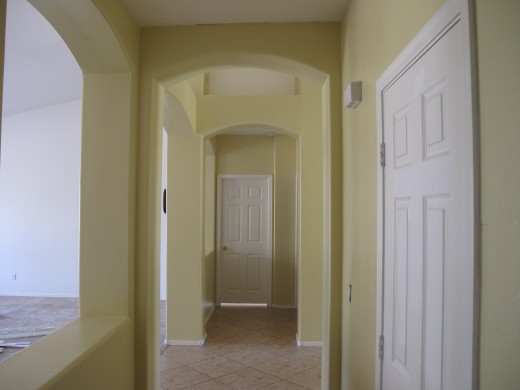
Paint isn't THAT Cheap: Beware High Remodelling Costs
Watching all the home decorating shows, you may be looking to turn your bank owned Cinderella into a princess of a place. Conventional wisdom claims that paint can change the whole look of a home for pennies on the dollar. Not quite. Now, if you don't really care what colors go on the wall and you have the patience and time to wait to paint the interior or exterior of the house, you can find paint inexpensively at the dent and scratch counter of your local home improvement center. We were able to significantly save on painting some of our bedrooms this way.
But if you are looking for that one special designer color (or three, as the case may be--after all, you HAVE been watch the home and garden channel), painting may be a bigger, more time-consuming, and expensive project than you expect. In fact, any home improvement project you budget to do yourself may just cost you more than you think. Estimate about 1 and a half times over what you think things will cost, and you may get a more accurate idea.
Our Story: Lots of Gripper and Kilz to Hide Permanent Marker on the Walls
We budgeted approximately $500 to paint two living areas, three bedrooms, and a long hallway in our 2300 s/f home with 9 foot walls and vaulted ceilings. Our friend who used to own a paint store strongly encouraged us to buy from a retailer who sells to painting conractors. We learned that we could get a discount if we bought on Saturdays, and saved 33% on the cost of paint. After buying about 5 gallons of the paint color we decided on, we set out to cover a very, very dark-colored olive green hallway. We learned that the hallway had been painted that color for a reason: the previous inhabitant had written on the walls with permanent magic marker. Two cans of Kilz and one can of Gripper later, we managed to prime a small portion of the hallway. Our single-story home has exceptionally tall ceilings, so we also purchased a stepladder and an extension ladder with the reasoning that we would need them for other things down the road. Add to that the cost of paint rollers, floor covering, masking tape, and other tools, we ended up paying well over the $500 we budgeted.
The alternative was to pay a contractor about $2400 to paint the whole house. Being the ardent do-it-yourselfers we are, we opted to save ourselves a lot of money. We did save, and don't regret the savings or the work, but be warned--if you plan to buy a bank owned home and do a lot of painting, it won't be as cheap as going to the Home Depot and spending $50 to change the color of a small room. We still have large areas of detail work that need to be completed and we have moved into our home.
The Bottom Line: Painting costs expand with the area you are painting
Paint is still one of the best ways to get quick, dramatic results remodeling a bank owned home. If you can afford an interior painter, the time you save and the quality results may pay for themselves, while helping you move into the home more quickly.
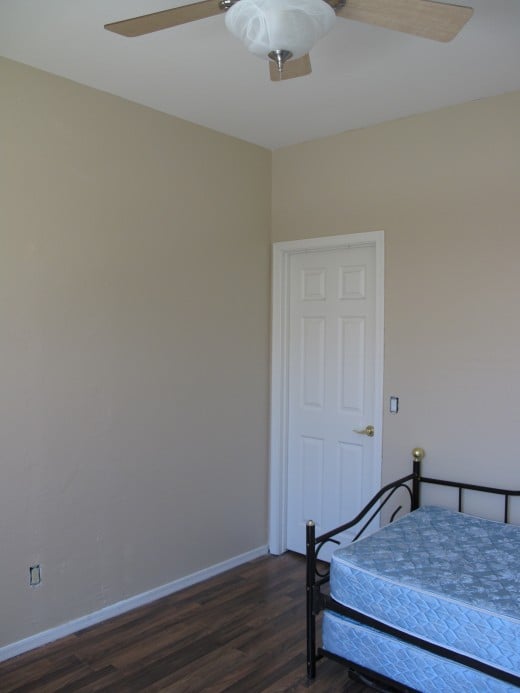
We Paid More for a Premium Home Inspection
We felt that we could not afford to buy a bank-owned home without first having it thoroughly inspected. The bank-owned home we purchased was in the last stages of the foreclosure process, so the bank to whom the home had reverted offered no guarantees on the condition of the property. This is the meaning of "As-Is-Where-Is."
Further, our bank shortened the standard home inspection period from 15 days to 5 days. Our home inspection included a termite inspection. I strongly recommend you include that in your home inspection, especially if your state, like Arizona, has a high incidence of termites.
Depending on the size and square footage of the home you are trying to buy, your inspection could cost you $300 to over $500.
A home inspection is a must for a bank-owned purchase.
Banks are not required to disclose any property defects and since **the bank** never actually lived on the premises, they aren't required by federal housing agencies to reveal any prior insurance claims made on the home either. That means that if mold is growing in the walls or the home is infested with termites, the bank doesn't have to tell the buyer. So buyer beware, and pay someone to inspect it.
If you have a friend or relative in some arm of the housing or construction business, I would hesitate to use this person as a short cut to a home inspection.
Sometimes a little money spent is a lot of money saved
Pay a little extra to get a high-quality home inspection. From our home inspection we learned right away that: The home needed additional insulation, the air-conditioner worked within normal ranges (saving us the worry that we would need to fix or replace the a/c), and the dishwasher didn't work. The home inspector also confirmed what we already knew, that the house looked like it had been painted by a two-year-old.
Our home inspector took photos of the home's defects and published a lengthy report on the internet. We were able to use this report to identify items that needed to be fixed. A good home inspection can be a help in any real estate transaction. We felt better about buying our "As-Is" purchase after reading the inspection report.
Skipping the Realtor is a False Economy
If you are thinking that you don't need a realtor when buying from a bank, think again. Now is when you need a realtor more than ever. Our buyer's agent did an enormous amount of leg work in helping us to locate properties, ferreting out pricing and sales histories on homes, and determining cost per foot on the price of our home.
After our offer was accepted, our realtor acted as a mediator between the seller and our lending institution, and was the first person to discover that our lender had fired (or something) our loan processor and our bank loan was hanging in limbo with no one to close the loan. Without our realtor we would have been twice as stressed and armed with a lot less information. No one is paying me to say this, but it is true: skipping the realtor in a bank-owned real estate transaction is a false economy.
Related Links
- 7 Tips to Avoid Getting Sucked into Real Estate Inve...
Real estate investment scams are definitely a problem that many unfortunate people have run into. Real estate is worth a lot of money (even in these days when the real estate market isn’t exactly at its best). That always attracts fraudulent... - Bank Owned Distressed Property Inspections jobs Info...
Learn how to take care of distressed properties for mortgage companies. Get started as a field service inspector helping insurance companies with abandoned foreclosures. - Real Estate Tips: How to Sell Your House Fast and Ma...
Buying and selling your house may be the most important thing you ever do. Make sure the transaction is a profitable one with these tips and tricks in real estate.
This content is accurate and true to the best of the author’s knowledge and is not meant to substitute for formal and individualized advice from a qualified professional.
© 2009 Carolyn Augustine



